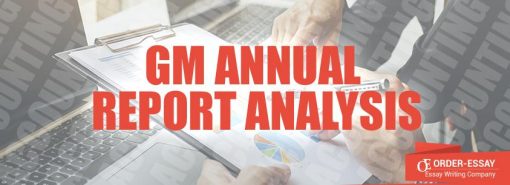
Tesco PLC is British general merchandise and a multinational grocery store that has its headquarters located in the United Kingdom (the UK). Based on its profits, it is the third largest retailer in the world. Revenue wise, it is the second largest retailer in the world. It is a leading grocery store in the UK with stores in 12 countries across Europe and Asia. In the UK, it has a market share of around 40%.
It is listed on the London Stock Exchange, and it constitutes the Financial Times Stock Exchange (FTSE) 100 Index. As of August 2014, its market capitalization was approximately £20.5 billion. It is the 28th largest company according to London Stock Exchange listings. The above information regarding Tesco PLC is derived from Institute of Grocery Distribution (2012).
In October, 2014, Tesco faced an Accounting Scandal, which probed investigation into its book of accounts for fiscal years 2012, 2013 and 2014. Financial Reporting Council (FRC) carried out investigations on the parties that were involved in preparing, approving and auditing Tesco’s financial statements for the years in question. Also, the investigations were conducted regarding accounting practices that led to the overstatement of profits by $410.75 million of the company’s first-half profit forecast.
Financial Reporting Council is a body responsible for regulating corporate governance and reporting of accounting practices for the company’s situated in the UK. This body may sometimes require a company like Tesco to restate its financial statements. By the powers accorded to it by the state, it can discipline accountants in case of misconducts.
FRC thus launched investigations to get information regarding preparation, approval, and auditing of Tesco’s financial statements. FRC has the mandate to sanction accounting firms such as PricewaterhouseCoopers (PWC), which is accounting firm for Tesco PLC, together with its staff for failure of applying the book-keeping rules as required. Due to the scandal, Tesco’s shares also fell drastically.
The reason PWC is being investigated is because it signed off Tesco’s account a few months before the fraud came to light. It went off to sign the account despite the knowledge of the risk associated with manipulating estimates of commercial income, which is a big determinant of profits. Tesco’s audit committee persuaded it that nothing wrong would happen. The scandal called for legal counsel and outside auditors to investigate the overstatement of its forecast first-half profits. This issue forced the company to issue its third profit warning in as many months.
According to Bloomberg News (2012), Tesco is the second-largest retailer behind Wal-Mart Stores Inc. Due to the accounting scandal, it has continued suspending more of its executives and issuing profit warnings. The accounting scandal has led to the decline of its market share due to the huge competition from high-end grocers and aggressive discounters.
The accounting scandal is alleged to have led to the suspension of several executive and non-executive members. The scandal has led to various investigations regarding the overstatement of profits. The parties involved in the investigation are Britain’s Serious Fraud Office and has led to several investors lawsuits in the United States and Britain.
PWC is Tesco’s accounting firm, and it is also responsible for conducting Tesco’s external audits. Regarding Tesco’s accounting scandal, FRC would be responsible for investigating Tesco’s accounting practices for the three years in question, and the audit done by PWC.
Various accounting practices that could have led to the accounting scandal with Tesco PLC are the early booking of commercial income. In addition, early bookings of rebates from suppliers, discounts, and promotional money could also have caused the scandal. Moreover, according to the company, delays in booking costs could also have led to the overstatement of profits.
Also, Tesco’s chief executive Dave Lewis stated that the overstatement of profits by £250 million in the last six months of fiscal year 2014 was due to the quick recognition of delayed accrual of costs and commercial income. He further stated, “it was of notice that Tesco was paying its suppliers later and taking money earlier than it is required.” Since the overstatement of profits was a quarter of its actual profits, this can suggest that the practice was rampant in all the stores located in the UK.
In addition, the investigation of Tesco’s main supplier, Unilever and Diageo, was carried out because Tesco accounting scandal involved promotions by its suppliers. Serious Fraud Office (SFO) wanted to uncover whether the Tesco Account on supplier’s promotions was in line with what was agreed with or understood by the suppliers.
The investigations from Deloitte indicate that the accountants have moved the rebates from suppliers to various periods of the company’s balance sheet. This issue could be traced back to Tesco’s fiscal years 2012 and 2013. For this reason, a thorough check of the financial statement had to be made from 2012 to 2014 accounting periods. After checking Tesco’s financial statement, Deloitte realized that the manner in which the discounts were accounted for contravened Tesco’s accounting policies.
According to Tesco, the above-stated accounting principles could also have been the cause for the overstatement of profits over the previous years. Tesco had performed investigations in its various food stores in the UK and came to a conclusion that illegal activities could not be the cause of accounting irregularities reported. The Serious Fraud Office in the U.K commenced criminal investigations into the accounting principles of Tesco.
Wal-Mart Stores Inc. that is a leader in the grocery market ahead of Tesco uses the US Generally Accepted Accounting Principles (GAAP) while Tesco uses International Financial Reporting Standards (IFRS). GAAP states that booking of revenues can only be made after goods and services are delivered. This definition surely extends to income originating from rebates and co-op. Price water house Cooper, Tesco’s auditors, mentioned that Tesco had taken enough liberties with its commercial income.
The delay in the booking costs, according to Tesco, means that payments were delayed so as to defer costs. According to GAAP, expenses are only recognized after goods and services are received. It, therefore, means that when goods or services come into a store or warehouse, the retailer is required to book the cost. Thus, the cost has to be accrued regardless of whether the payment of the bills is made or not.
Most companies can overstate their profits causing a delay in the payment of bills. Or rather, companies like Tesco can opt not to include the checks cut. It is because these practices have no impact on the income statement.
It is a practice that Tesco carried out in the course of overstating its profits. One way that Tesco could have caused a delay to the booking costs is by not recording the invoices to the books of account. In the electronic accounting world this is not an easy task. It, therefore, means that the act was consciously and keenly managed. It simply means that the accounting parties had lots of problems.
Preparing its consolidated financial statements, Tesco PLC ensures that it incorporates various accounting principles and assumptions. The assumptions and principles affect the reporting of assets and liabilities, and expenses and revenues. The estimates of the accounting items and corresponding assumptions are usually based on historical experience and other factors linked to the particular situation. Sometimes actual results differ from the projected values.
To prevent the overstatement of profits, Tesco ought to hire independent auditors to monitor its internal control practices (Holt, 2008). According to Sarbanes- Oxley Act (SOX), It is a way to avoid accounting scandals.
Regardless of high initial cost of hiring an outside independent auditor, it has been proven beneficial for all sorts of businesses. First, markets can get specific information about a particular company more effectively. Second, it also helps managers in improving the internal processes. In addition, it makes testing of internal controls more cost effective over duration of time.
Moreover, Tesco PLC should use GAAP while preparing its financial statements. According to Lubbe, Modack, and Watson (2011), GAAP helps a company in regulating and standardizing its accounting assumptions, methods, and definitions. Also, GAAP would help Tesco PLC in ensuring consistency of its financial statement.



Accounting helps both internal and external parties in making decisions regarding any business. Tesco PLC can use the cash flow statement to ensure the cash flow is corrected. Also, it may decide to delay some cash purchases depending on the effect that the transaction would have on other financial statements because GAAP sometimes allows such practices.
Also, accounting would help Tesco PLC to generate profit and loss accounts and other key accounting documents. It would help its managers in managing the company more efficiently. Flood (2014) notes that without financial documents, Tesco PLC would find it so difficult to run its activities and make business decisions.
Accounting is a necessity for any corporation since closing the books it shows the business owners and the stakeholders the net profit or net loss that the business might be making. If Tesco PLC did not have an accounting department, it would not have been able to monitor the effectiveness of business operations. Accounting is essential since it helps a corporation to be up to date on its day to day transactions.
Get a Price Quote
As for ethical issues, Tesco could prevent accounting scandals from happening developing a variety of products for its customers, and ensuring diversity by employing people from various cultural backgrounds. Also, it should come up with efficient supply chain policies and healthy living practices such as the invention of more genetically modified products that are major customers’ preferences.
Managers of supermarkets like Tesco can have complex relationships with their suppliers. These relationships can add a degree of subjectivity to the profits that a company is making. Tesco suppliers always offer discounts that are usually linked to sales made or promotional activities.
Thus, it is very important for managers to be keen when recognizing profits. It is because managers may sometimes make assumptions about the products they are likely to sell within a particular period and also assume the promotional costs. This can affect the level of discount applied, and the assumptions about the revenues generated. To avoid the overstatement of profits, Tesco PLC should avoid bringing forward sales and pushing back costs. This is similar to recognizing revenues when goods or services have not been received.
FRC investigation will mostly be on audits done by PWC. FWC will investigate Tesco’s account and the principles and assumptions used to prepare the accounts. Since the investigations will also include the investigation of the two previous years, 2012 and 2013, it will also involve investors. It is because investigations can bring out more evidence into the matter of previous years than it was originally thought.
In case of any misconduct in the accounting procedures, FRC can make PWC pay fines. PWC will also be required to pay the huge costs of carrying out audits on Tesco inappropriately. In addition, any individual who will be found to have misbehaved will face high charges. Because the investigations of FRC will take a year and those of Serious Fraud Office are bound to take about two years, Tesco might continue dealing with its accounting problems until 2016.








